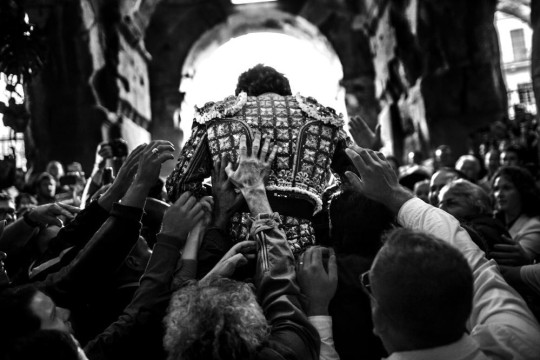#cazalis
Text
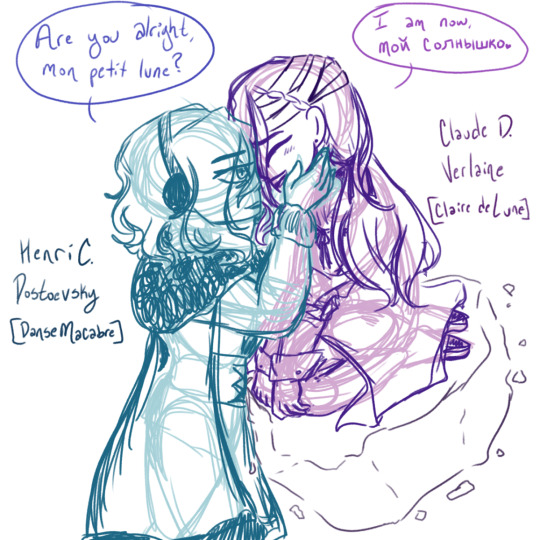
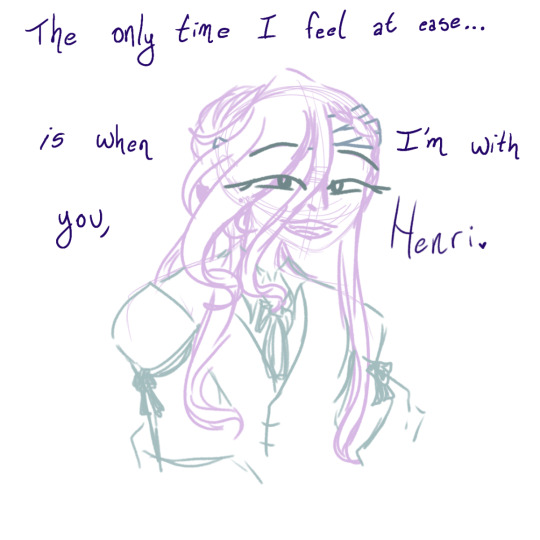
chimeraverse demanded that i smack fyovan and rimlaine into two separate people for maximum codependency
Claude (Ivan + Verlaine)'s Claire de Lune permits him to manipulate the individual gravity of rocks and other earth
Henri (Fyodor + Rimbaud)'s Danse Macabre allows him to puppeteer the bodies of people who touch him
#bungo stray dogs#bsd ocs#bsd#bungo stray dogs oc#bungou stray dogs oc#bungou stray dogs fanart#bungou stray dogs#chimeraverse#oc: claude debussy#oc: henri cazalis#portrait of a gallery
6 notes
·
View notes
Text
« Je suis irrémédiablement perdu. Je suis même à l’agonie… C’est la mort imminente et je suis fou. Ma tête bat la campagne. Adieu ! ami, vous ne me reverrez pas. »
Guy de Maupassant
1 note
·
View note
Text
Canzon triste
Henri Duparc (21 gennaio 1848 - 1933): Chanson triste (1868) su testo di Jean Lahor alias Henri Cazalis. Jessye Norman, soprano; Dalton Baldwin, pianoforte.
Dans ton cœur dort un clair de lune
Un doux clair de lune d’été
Et pour fuir la vie importune
Je me noierai dans ta clarté.
J’oublierai les douleurs passées,
Mon amour, quand tu berceras
Mon triste coeur et mes pensées
Dans le calme aimant de…
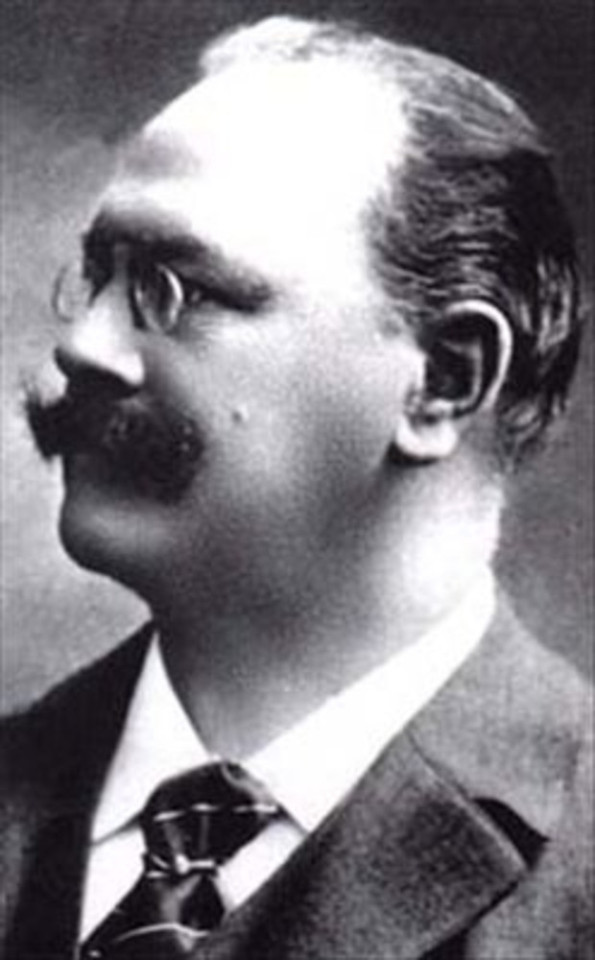
View On WordPress
1 note
·
View note
Text
Good Omens s3 clue
I realised I never posted this, although I made it ages ago! So here y'all go!
This is going to be long, and I hope it will make sense. Please bear with me to the end, I will eventually get to the Judgement Day, Armageddon, Death (and four horsemen of Apocalypse) and I will mention goats.
I noticed this tiny clue when watching s2ep3. Aziraphale drives to Edinburgh and the Bentley plays classical music. But not just any classical music – it’s Danse Macabre by Camill Saint-Saëns.
I am a musician and I've played this piece in the past, so I knew there was a lot of symbolism to uncover. And that thing is deeper than I thought. I will be speaking about some music theory, but I will try to make it as understandable as possible.
I think it would be best, if you listened to Danse Macabre: https://youtu.be/…zrJ
I would like to speak once more about the scene in which Danse macabre appears. Aziraphale is driving to Edinburgh in now a yellow Bentley, and he even has his "car sweets". He is quite satisfied. And he plays this, certainly dark-themed, music. It is a major contrast.
Danse Macabre, "the dance of death" is a memento mori. Memento mori is a theme we see in art, and it originated in medieval times as reaction to the plague. It should remind us of our own mortality. “Memento mori” literary translates as "remember death". And mark my words, do remember death!
The composition uses tritones, a special kind of a music interval. (Interval is the tonal distance between two tones, you can play the tones together and/or separate.) Tritone is seemingly dissonant because it uses seemingly inharmonious tones. (You can hear tritones just at the beginning, the violins play it.) Because of its dissonance it was called "the devil in music" and was considered forbidden and associated with Hell/demons/death.
Since the music piece and the poem is based on the theme of Memento mori, I had to look into it as well. Turns out Danse Macabre was inspired by a poem by Henry Cazalis. Here is the poem: https://oxfordsong.org/…bre Memento mori doesn't only remind us of death and our mortality, it also reminds us, that everyone's equal in death. Henry Cazalis, the poet, writes: Long live death and equality! The poem is called, of course, Danse Macabre, but I found that it is also called Égalité - Fraternité (when reading stuff about it in French). This is a reference to the French revolution motto: Liberté, Égalité, Fraternité (Liberty, Equality, Brotherhood), but Liberty is missing. Is there then no Liberty in death and we are all doomed to obey someone's will, The Ineffable plan? (Good Omens book and season one also deals with topics of free will, look at Crowley and Anathema. She has been doing only the things her dead ancestor told her to do, she overcomes it in the end. I think it nicely illustrates the problematic of a free will. And Crowley values free will a lot.)
Memento mori says one thing - remember death, no one can outrun it. And there I would like to get back to season 1, because who else we meet here than Death itself.
Death is one of the Four Bikers/Riders/Horsemen of Apocalypse. But I always thought Death has a higher rank than the others. If you think of it, War, Pollution and Famine all lead to one thing- to Death. Why would you need all three then? Isn't Death qualified enough to do its job? Also, rewatch the scene where Adam and his friends battle them! War, Pollution and Famine all get destroyed by the flaming sword. But not Death- it spreads its wings and says (quote from the book): "You cannot destroy me. That would destroy the world." And later he adds that they are never far away. And he flies of. He isn't destroyed.
Death didn't appear in season two and I think people are starting to forget it, but Memento mori! Remember Death!
I would also like to remark that Neil Gaiman says the whole story is plotted out and that he has done this with Terry Pratchett. In every Discworld series book (the magnum opus of Sir Terry Pratchett), apart from two or three, there is the character of Death. And I think it would make sense that Death would appear in Good Omens as well, after all, it is also Pratchett's book. I think we might see Death returning in season three, because the Day of Wrath/Last Judgement/Armageddon is coming. And this music piece could serve as a literal memento mori - remember Death, it has not exited the scene yet. (A lot of Pratchett's humour is based on puns, and this seems like a joke/plot twist he would try to use. It's my personal opinion based on how I know his style from his books.)
And what's next? Armageddon is coming, the Day of Wrath is here! Both sides are pretty eager to do this ending-of-the-world thing and after all, it's what they have been trying to start from the begging of the show. It was delayed by Gabriel's "disappearance", but things are now getting into motion, I think.
But back to the Danse macabre, because it (surprise surprise!) has quite some things to do with the Judgement Day. In the middle of the composition Cammille Saint-Saëns uses a musical theme from a different work, a Gregorian chant called Deis irae ("Day of Wrath").
Here is a link to Wikipedia page about the chant, you can listen to it there. (I didn't find any recording on YouTube, only other musicians using the quite popular words of the chant and not the actual music.) https://en.m.wikipedia.org/…rae
About the chant itself. It is written from the point of view of a sinner/normal person, and it describes how the Last Judgement shall be. Before dealing with the themes of the chant itself, I would like to say, that Saint-Saëns has used the Deis irae in a major key. Allow me to do a quick music theory intermission.
You can play in two keys, major and minor. These are, if I oversimplify things, sets of notes with different intervals. The melody, played one tone at a time, can be used in both major and minor key. The melody isn't the thing that determines the key of the song, the tones played with it do. And depends on what tones you use, you either get major or minor. Major is (in western culture) associated with happiness and good things, while minor with sadness. (It's not always like that, but for the sake of understanding we are going to pretend it is.) Now, the Deis irae is usually written in the sad minor key. Saint-Saëns decided to use the happy major key with this depressing chant, once again creating contrast. I'm stumbling over contrasts more than usually, so this may be important. End of the intermission.
In the third and fourth strophe of Deis irae, it's described how the sound of a trumpet will sound everywhere and the Death will resurrect all dead creations to be brought to the Judge. (Death is back again and resurrecting, that sounds familiar, where have we seen that before?)
In the fifteenth strophe, the writer, a sinner, prays for this: Put me with the sheep and separate me from the goats, guide me to the right side! Goats again, there they are! This strophe of course references the chapter 25 in the Gospel of Matthew, the Separation of sheep and goats. Sheep go to the right and goats to the left. I think the side symbolism is pretty clear in Good Omens. Right is the righteous side and left is the sign of sin. And we also know how Crowley cares about the goats. There is also the Jewish tradition of scapegoat. Either way, goats are connected to Crowley, their symbolism of being “on the left side” is clear. This interesting bit can play part in Armageddon.
In the fifth strophe of Deis irae the Book, that is exactly and perfectly worded and that will judge all world, appears. And this book is no other than The Book of Life.
We know about Book of Life from the season 2, Micheal threatens to force "extreme sanctions" (erasing them form the Book) upon anyone who knows about Gabriel.
Enter a fan theory I read: Nor Heaven or Hell actually have the Book of Life, we never see it on screen. This was mentioned in a tumblr post, and I will probably never be able to dig it up from the depths of the internet, so remember this is not my theory. (Although I find it very interesting.) The post continues and remarks, that when Crowley in the first episode of the second season learns about the Book and the "extreme sanctions" from Beelzebub, he doesn't bat an eye. He is pretty calm and doesn't seem surprised. (He literary says: "That will teach them a lesson", man, we're talking about being wiped from the earth's surface completely!) The writer of the post thinks, this is because Crowley knows that Heaven doesn't have the book and he knows where it is. The writer claims, it was Crowley, who took it as a little souvenir before his Fall, and later has hidden it in Aziraphale's bookshop. ('Cause one single book will definitely stay hidden in all those piles of old books.)
I think this is really interesting because of Crowley’s reaction. He knows what Aziraphale is risking, and he loves that angel, yet he seems so calm. When the bookshop burned down in the fifth episode of season one and Crowley thought Aziraphale died, he went feral: he was angry and furious, and he was destroyed by the fact that he has lost Aziraphale. He mourns and gets drunk. Nothing of this happens in season two!
So, what are my thoughts on season three? It will get really dark and serious, the Armageddon is coming, after all. I think we will see Death return and the Book of Life will appear. The goats may not be used literally, like on screen, but I think we will get some metaphors.
In all of this, I tried to say one thing. All of the cards are laid out, we have all of the clues. It would be pretty cheap trick to use some ineffable "deus ex machina", that's not Gaiman's and Pratchett's style.
I think everything is now foreshadowed; we have been given all the information. We just haven't made the links in-between. Given the uproar the second season has caused, I think people are forgetting the first season a bit. But it must end with what it started with.
I think we should look at both seasons equally and try to pick up as much as we can, after all the third season will not be based solely on the season two...
We have all the clues, now it's Neil Gaiman who plays an ineffable game of his own devising, a poker that nobody has the rules for and the dealer, Neil himself, is smiling all the time. Ineffable, indeed. If you ask me, he's enjoying it bloody-well.
#good omens#neil gaiman#s3 speculation#good omens clues#good omens meta#good omens 2#ineffable husbands#aziracrow#aziraphale#crowley#good omens fandom#go 2#david tennant#micheal sheen#good ineffable omens#ineffable fandom
61 notes
·
View notes
Text
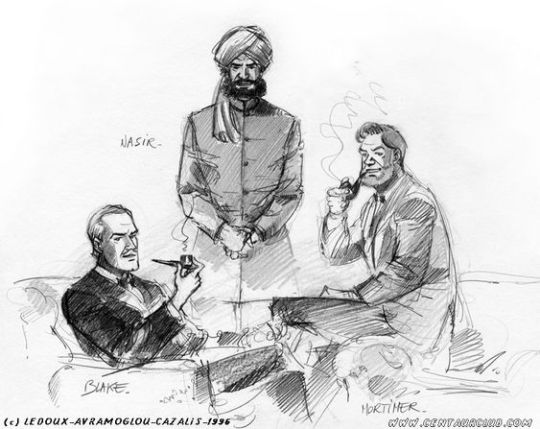
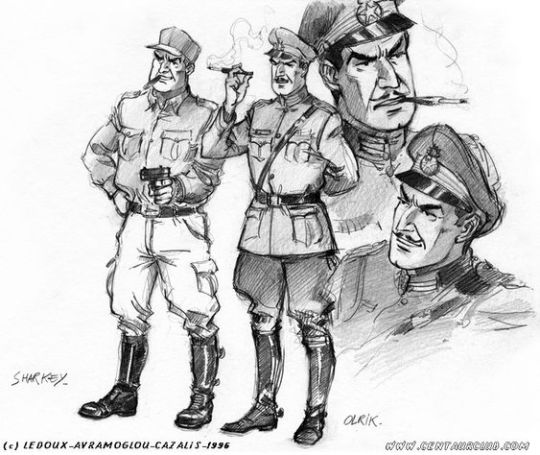
Projet de Claude Ledoux, Dimitri Avramoglou et Louis Cazalis (1996) - Étude des personnages
#Blake et Mortimer#Blake and Mortimer#CentaurClub#Francis Blake#Ahmed Nasir#Philip Mortimer#Sharkey#Colonel Olrik
14 notes
·
View notes
Note
oh my god what am I reading about a dru comic in your tags....seriously cannot wait to see that
hehe it is a 10ish page comic that ive been working on that shows drusilla carrying the fresh corpse of william to his grave to wait for him to turn and rise again. been trying to incorporate elements of the danse macabre (both artistic motif and the henri cazalis poem. as well as the saint-saëns tone poem). its been taking foreverrrr but ☝️i will eventually finish it. bc i want to work on another drusilla comic thats about HER turning using lyrics from the song waking the witch by kate bush. because that is her anthem
14 notes
·
View notes
Text
the grandfinal is great, because they sing a bunch of classics
Waltzing matilda
Up there Cazaly
I think this year they have KISS as their guest stars?
and anyways, anything’s good compared to the national anthem
The jerseys!!!!!!
4 notes
·
View notes
Text
Black Panther contre l’Atlantide noire | jef klak | 📃✒️
Black Panther contre l’Atlantide noire | jef klak
CULTURE DE BASE / DÉ-COLONIALITÉS
19 mars 2018
BLACK PANTHER CONTRE L’ATLANTIDE NOIRE Afrofuturismes, Internationalisme révolutionnaire et Capitalisme Noir
Par Asad Haider
Traduit par Ferdinand Cazalis
Texte original : « Black Atlantis », Viewpoint Magazine, 5 mars 2018.
Clique sur le lien ci-dessous ⤵️
https://www.jefklak.org/black-panther-contre-latlantide-noire/
Interagissez Avec Nous…

View On WordPress
#BLACK PANTHER CONTRE L’ATLANTIDE NOIRE Afrofuturismes#Internationalisme révolutionnaire et Capitalisme Noir
0 notes
Text
💃💀 | raoul | mm trial 2
“Yes, yes, Le Danse Macabre…”
Raoul taps his chin in thought, nodding as Mirai activates his trap card by bringing that up, causing him to completely bypass the hostesses’ question in his eagerness to talk about this particular thing.
“Very interesting, that name. Certainly, many of you must have heard that one iconic song, the one that goes—“
Waving a finger as though conducting an imaginary orchestra, he hums a segment of identifiable notes from Danse Macabre by Camille Saint-Saëns.
“Danse Macabre by Camille Saint-Saëns,” thanks “truly, this piece has found purchase every which way in the Western cultural landscape… but did you know that, before there was a violin, there was a voice? Yes, originally it had lyrics, penned by the poet Henri Cazalis, they went something like—
Tap, tap, tap, what a saraband!
Circles of corpses all holding hands!
Tap, tap, tap, in the throng you can see
King and peasant dancing together!”
Thankfully, he’s chosen not to recite the entire thing.
“Surely most of you already know this, but should you not— le danse macabre, the dance of death, is the artistic depiction of people, well, dancing along on the way to the grave. Morbid, yes, but it was meant to be reassuring in a time when things such as modern medicine did not exist, and so untimely death was far more common. Earthly wealth, status, achievements— none of it matters in the end, for all shall be reduced to jubilant skeletons, beckoning the next round of the dead to join in the fun. A final reassuring equalizer of sorts.”
His hand extends, gesturing around at all the others.
“Consider all of us. Would our paths have crossed had we not been brought here? Surely not— but we were brought here nonetheless. To participate in the Hellmouth Games. To die for them, and to supposedly continue them as demons, as it seems that our hostesses have done so when appointed to such a position by the true Louisa Nightingale…”
Briefly, his expression falters, but his smile returns nonetheless.
“They found jubilation in our deaths, and now they seek to join skeletal hands with us so that the suffering here may yet continue. Our earthly lives reduced to naught but the ash that encases us and transforms us into something infernal.
That, my friends, is Hellmouth Manor.”
It’s kind of impressive that he managed to say so much while still completely failing to answer the question. Someone else please take over. At least he tried?
0 notes
Text
It was thus that Blanche de Cazalis eloped with Philippe Cayol, one fine May evening. Ah! sweet and terrible night! which was doomed to overwhelm the lovers with wretchedness, and bring them nothing but suffering and regret for the rest of their lives.
— Emile Zola, The Mystery of Marseille
0 notes
Text
me bajé un cazalis solo y no me hizo nada pero AHORA empieza la fiesta (fernet <3)
0 notes
Text

For the final Inktober drawing of 2023, and because it's Halloween, I decided to try illustrating a scene from the poem "Danse Macabre" by Henri Cazalis (the same poem that the famous Saint-Saëns piece is based on) where Death plays on his violin.
0 notes
Video
youtube
Peter Lawford, EG. Marshall, Harry Morgan, Stephanie Powers, Ellery Queen
Ellery Queen: Don't Look Behind You is a 1971 made for TV film adaptation of Ellery Queen's novel Cat of Many Tails. The film was intended to spawn a new television series like the earlier versions of the character (The Adventures of Ellery Queen). This is the only Ellery Queen story or film in which Inspector Richard Queen is portrayed as Ellery's uncle instead of as his father. Critics speculated that this change was made because Harry Morgan was only eight years older than Peter Lawford and because the two had different accents (American and British). Cast Peter Lawford – Ellery Queen Harry Morgan – Inspector Richard Queen E.G. Marshall – Dr. Edward Cazalis Skye Aubrey – Christy Stefanie Powers – Celeste Phillips Coleen Gray – Mrs. Cazalis Morgan Sterne – Police Commissioner Bill Zuckert - Sgt. Thomas Velie Bob Hastings - Hal Hunter Than Wyenn - Registrar Buddy Lester - Policeman William Lucking - Lt. Summers Pat Delaney - Miss Price Tim Herbert Robin Raymond Victoria Hale Billy Sands as Adrian Abbott Never Miss An Upload, Join the channel. https://www.youtube.com/@nrpsmovieclassics
0 notes
Link
"Crudo": Homenaje a Ismael Sauce un ícono del rock venezolano
0 notes

